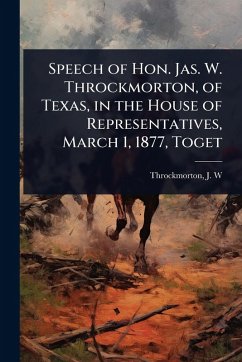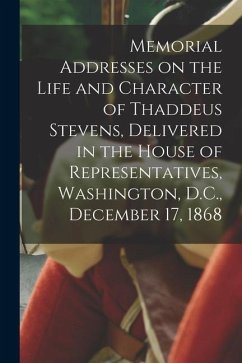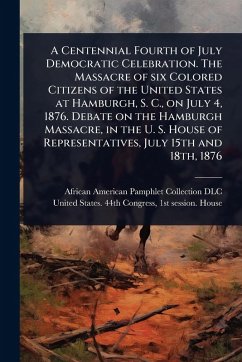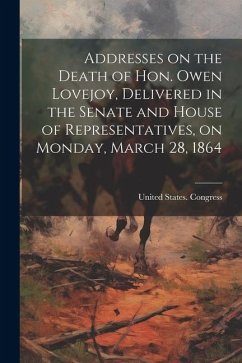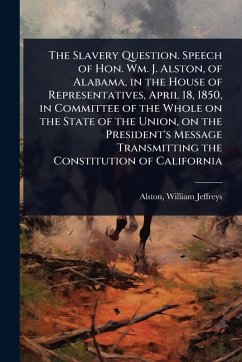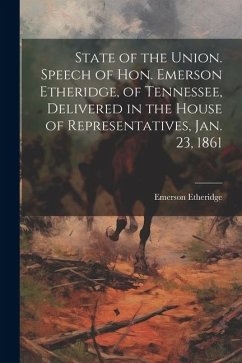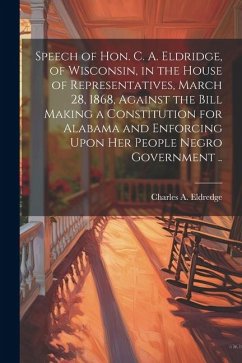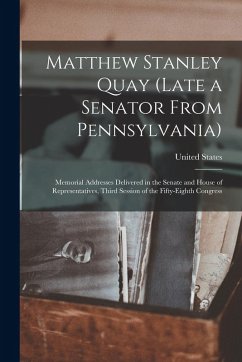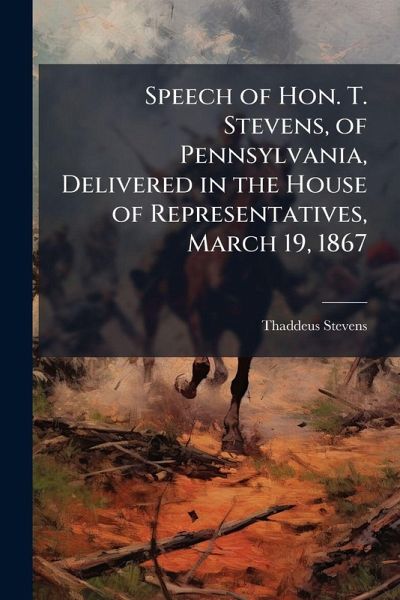
Speech of Hon. T. Stevens, of Pennsylvania, Delivered in the House of Representatives, March 19, 1867
Versandkostenfrei!
Versandfertig in über 4 Wochen
14,99 €
inkl. MwSt.
Weitere Ausgaben:

PAYBACK Punkte
7 °P sammeln!
This is the speech of Hon. T. Stevens, of Pennsylvania, delivered in the House of Representatives on March 19, 1867, concerning Bill H.R. No. 20. The bill addresses the damages suffered by loyal men during the Civil War and outlines other related purposes in the Reconstruction era. Thaddeus Stevens, a leading Radical Republican, argues his case for the compensation of loyal citizens who suffered losses during the conflict. His speech provides valuable insight into the political and social climate of the time, reflecting the debates and concerns surrounding the Reconstruction efforts following ...
This is the speech of Hon. T. Stevens, of Pennsylvania, delivered in the House of Representatives on March 19, 1867, concerning Bill H.R. No. 20. The bill addresses the damages suffered by loyal men during the Civil War and outlines other related purposes in the Reconstruction era. Thaddeus Stevens, a leading Radical Republican, argues his case for the compensation of loyal citizens who suffered losses during the conflict. His speech provides valuable insight into the political and social climate of the time, reflecting the debates and concerns surrounding the Reconstruction efforts following the Civil War. Stevens's perspective offers a glimpse into the complexities of restoring the Union and addressing the grievances of those who remained loyal to the United States. This historical document is essential for understanding the challenges and controversies of the Reconstruction period. This work has been selected by scholars as being culturally important, and is part of the knowledge base of civilization as we know it. This work was reproduced from the original artifact, and remains as true to the original work as possible. Therefore, you will see the original copyright references, library stamps (as most of these works have been housed in our most important libraries around the world), and other notations in the work. This work is in the public domain in the United States of America, and possibly other nations. Within the United States, you may freely copy and distribute this work, as no entity (individual or corporate) has a copyright on the body of the work. As a reproduction of a historical artifact, this work may contain missing or blurred pages, poor pictures, errant marks, etc. Scholars believe, and we concur, that this work is important enough to be preserved, reproduced, and made generally available to the public. We appreciate your support of the preservation process, and thank you for being an important part of keeping this knowledge alive and relevant.



